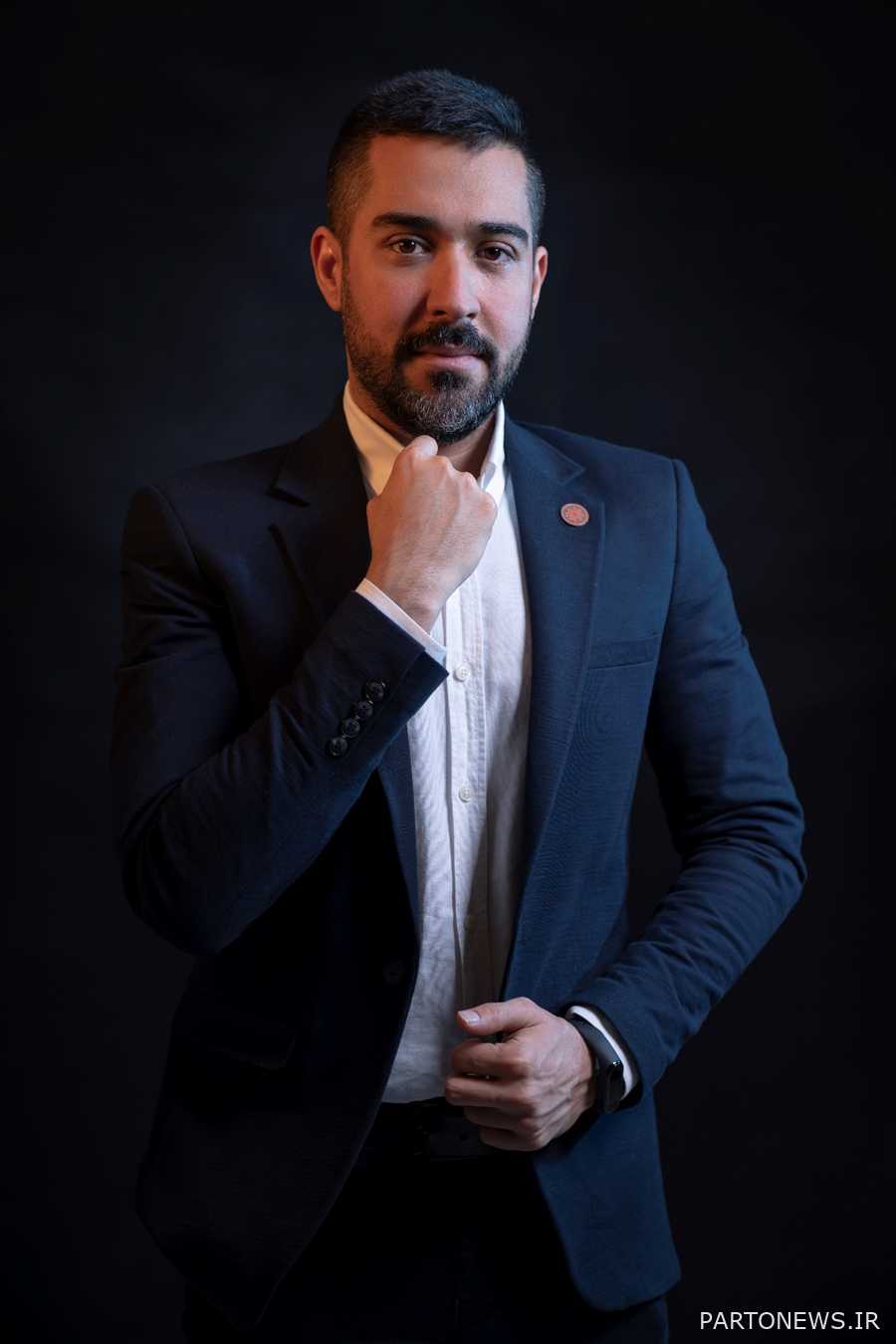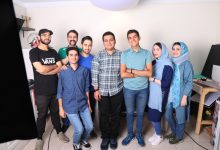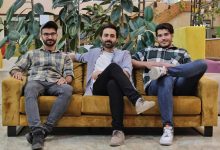Orange, specialized commercialization accelerator – Ecomotive

If you are the owner of an idea or a business in the field of biological sciences and technologies, and of course, health, or you are studying in one of these fields, we recommend that you watch our two-part interview with “Orange Accelerator” from Don’t give up; An accelerator that, based on international standards and with the participation of its European partners, has crossed the two lines of science and business and focused its activities on the commercialization of scientific research.
Please allow us to get to know you better first.
I am Arin Aghili, the CEO and co-founder of the Orange Accelerator and a PhD student in the field of science and technology policy at Iran University of Science and Technology. My doctoral thesis is being compiled on the topic of acceleration in deriving a model of the commercialization process of new activities, focusing on Iran.
Since 2008 and after several work experiences that I had as an expert in various organizations and companies, I focused my activity on self-employment and setting up a specialized collection in the field of project and business management training and consulting. This decision was related to the time when I finished my bachelor’s degree in electronic engineering at Khwaja Nasiruddin Tusi University and also obtained my master’s degree in the field of international business management with a focus on financial management and marketing.
What made you think of establishing the Orange Accelerator?
After the various experiences that I had gained in the field of business development training and consulting, with the cooperation of one of my very good and old friends – Behrooz Natghi – I jointly founded the Orange Accelerator in 2016 and in 2017 this collection was officially established. registered and started our official activities.
We started the Orange Accelerator as two founders who did not have relevant education in the fields of science and biological technologies, but were experts and educated in the fields of management and business; That too, after the commercialization of one of the scientific projects that my partner had invested in, encountered problems.
Both of us, who have a history of cooperation and familiarity with each other for almost fifteen years, were familiar with the development of new businesses and had done joint projects together, but the development of businesses focused on innovation and commercialization. They are a new technology, it has its own requirements that we were not very familiar with before that project.
Based on this, we initially focused on getting to know more about the processes and methodology of developing innovative and technological businesses, and the mentioned project, as the first project and startup of the Orange Accelerator, was put on the agenda in a specialized way.
The result was the extraction of specific methodologies to accelerate the commercialization of technology, which was realized through the trial and error of the co-founders and also, the experiences we gained in this field along with scientific expertise, and we felt that these methodologies, for other Researchers and startup teams arising from the research space in biological sciences and technologies also answer.
Why did you choose the field of biotechnologies for your activity?
Apart from the fact that my partner’s first investment project was in the field of biopolymer raw materials production, according to the Blue Ocean Strategy, I felt that despite my mentoring and pre-acceleration experiences in the field of online platforms and services, the field of technology Life sciences are extremely attractive, empty and really need such services.
It was a more attractive market and game for us, instead of choosing the traditional innovation ecosystem of Iran, to turn to a new area, with a texture and structure focused on research commercialization. Namim, not an innovation accelerator; In the sense of the custom for which it exists and is common.
According to your international experiences, what are the significant differences between the accelerators of Iran and the world?
It is a detailed discussion, but the accelerators of the world, such as Y Combinator, which is happening in the acceleration industry in the United States, have a fundamental difference with the accelerators of Iran; Because they are defined in a completely different cultural, educational and economic structure.
For example, a Harvard or MIT student who enrolls in this pioneer accelerator and launches a startup will have acquired soft skills and basic knowledge of business and management to a great extent during his studies. has done. Accordingly, Y Combinator believes that if you create the four foundations – mentoring, training, co-working space and providing seed capital – you can introduce an organization in the form of an accelerator, but if this framework in Iran, to be copied, does not answer well due to the difference in the cultural, social, political, legal and educational background and the fact that our accelerator audience in Iran also has a traditional origin in its education process.
Even the reason for changing the subject of my doctoral dissertation at one point in time was the feeling of a special need that I came to, and that is that the country’s innovation ecosystem seriously needs local accelerated versions. Iran is a country that is very rich in terms of financial resources and the level of human talents and even infrastructure, especially in the field of biological sciences and technology and in fact the health industry, and the model of American, Chinese or European accelerators with the cultural, educational and sociological context of the ecosystem Our innovation is not conformity.
In what fields do the international partners of Orange cooperate with your accelerator?
Our partners have been selected with a view to creating a network of strategic partners in various fields that can accelerate the commercialization and acceleration of a new technology in biotechnology. In fact, the philosophy that was defined for our international activities and strategic partnerships in the international field has been based on the premise that innovation is an activity that can be done in the form of a network, and if we use the “bridge” metaphor which is hit on the innovation valley”, let’s go back, my belief is that this bridge has a series of building blocks that an innovation and growth center or a technology transfer office or even an accelerator cannot be equivalent to the whole of it alone. Other components should be placed next to it.
In choosing the partnership strategy, newer innovation paradigms and models were put on our agenda, and these collaborations, which are defined and specified in newer models such as CoIN (Collaborative Innovation Network), both in the regulatory discussion, The areas of attraction of financial resources and required funds are introduction to the market and in patent and branding that can help the Orange accelerator.
Our current partners are groups that, like us, are engaged in acceleration activities with a focus on the conditions of the innovation ecosystem, as well as groups whose activities are based on providing shared workspaces, obtaining permits to enter international markets, and creating Communication is for the sale and export marketing of Iranian knowledge-based products, which is the main point of our international activities.
The Orange Accelerator has set up an office in Europe. Can you elaborate on that?
Our office in the city of Rotterdam, the Netherlands, was established with the aim of creating a base for the export of Iranian knowledge-based products in the field of biological and health sciences and technologies; Because we believe that Iranian nascent knowledge-based or existing industrial and production startups, if only they can, as they should and maybe, get the regulatory process and obtaining licenses and requirements to be present in the export markets, which our focus is of course on the European markets. and only concentrate their sales and marketing departments in Europe or even outsource to us, they can sell internationally what they produce domestically, with local talents, raw materials, energy and local costs. and generate income and import currency.
Another activity of our European office, which we have a special eye on, is the attraction of financial resources and venture capital for startups in emerging countries (like Iran) in the innovation ecosystem, and this attraction of international capital can be a great achievement. be attractive
One of our visions is to create international companies with an Iranian core, and we believe that like the neighboring country-Turkey-, Iranian companies with their Iranian co-founders also have the ability and competence to do business on a global scale; So, in other words, the globalization of Iranian companies is our vision in the European group of Orange, which is operating under the title of Orange Accelerator.
What are Orange’s criteria for accepting a business?
It is very simple; It is enough for that startup to have a prototype of a product designed for a significant market; Come to us with an initial prototype that can possibly solve a market problem and customer demand. Of course, the startup must have a relative knowledge of the regulatory debate and the path of obtaining licenses, which is very important in the field of health and biological sciences and technologies.
Due to the fact that many times in the field of health, the work is not a team; Even we do not require a startup team and we try to support single founders as well; Although one of the controversial issues is the great importance of team building, but in our field of work, a researcher who has an MVP in his hand, who finds a balance between a significant problem in the market and a valid solution in the laboratory, which is called Problem-Solution It is called Fit, or we attract evidence of a TRL of four or five for it.
What facilities does Orange provide to startups?
We provide two shared workspaces in the cities of Tehran and Tabriz to active teams in the fields of raw material production, food biotechnology and medicinal chemistry. Another of our services is providing seed capital with smart models; Models that assure investors that resources are being spent wisely.
Introducing them to the Orange Accelerator ecosystem and branding, which is a trusted name for investors and trustees, legal advice and financing are among our other services, which, of course, depends on whether we follow a traditional acceleration model or go for Venture Building. .
Both of these are operational in the Orange Accelerator, but they have differences in terms of facilities and services; In the Venture Building model, we ourselves become a member of the team and stand next to the founder or researcher of that startup.
How many startups have you attracted so far and what was your output?
So far, we have attracted 18 startups, 6 of which have successfully exited and have been financed to the tune of 60 billion tomans.
Four pharmaceutical startups were merged and the PharmaPlex startup was formed. We have had a startup in the field of peripheral nerve canal reconstruction, a startup in the field of bone reconstruction, and a bleeding stop startup in the field of medical equipment and reconstructive medicine. We also had a startup outlet in the field of food and probiotics that has attracted capital and its production line is being launched.
Our other startup in the field of biological raw materials and biopolymer, which has succeeded in producing medicinal chitosan and glycosamine, attracted a capital of 14 billion tomans and is launching its production line in an industrial town near Tehran.
How long can teams stay in the Orange Accelerator?
The period that we have considered for the teams normally is one year. Common three-month intervals in tech and ICT accelerators, for the health industry and the field of science and biotechnology, considering the complexities and multiplicity of actions and activities required for a team to reach sufficient maturity (our criteria for Achieving that maturity is not only TRLs or Technology Readiness Level, but our focus is more on Market Readiness Level or MRL), it is not enough, but every month and at the end of the season, the progress of startups is continuously evaluated and Even the necessary advice to leave early may be given to the teams. Of course, if a team’s development plan is clear from the beginning, it can achieve the desired result in a shorter period of time, such as six months.
In the Orange Accelerator, the progress of the teams should be accelerated, facilitated and guaranteed as much as possible in a path that is developed specifically for each one; This issue forms the core of our services and acceleration and development activities for our new technology businesses in Portugal.

